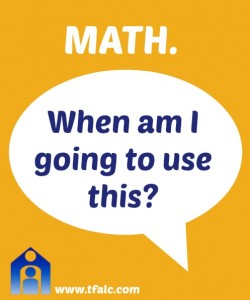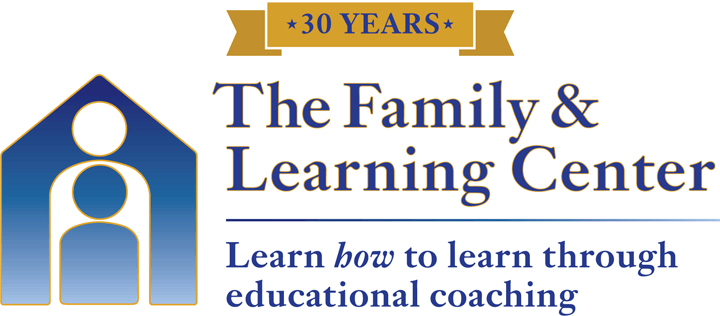There are two types of math people in this world.
1. Those who are good at math. The ones who “get” math. The ones who tried to help me understand parabolas and differentials.
2. Those of us who aren’t. The ones who re-read a word problem seventeen times and still aren’t sure what the question is asking. Is there even a question?
I liked math in elementary school. I liked it less in middle school. And by high school, I dreaded that part of the day. I made it through my times tables, fractions, algebra, geometry, trig, and even calculus. But it was a struggle.
I actually got good grades in math, but that was because I completed my homework assignments on time. Those homework points balanced out my test grades, and I always did the extra credit assignments.
When I was learning these concepts, I never questioned if I would use this information in the future. I was a student; getting an education was kind of my job. Math was part of education. Therefore, I sat at a desk and I focused on learning math the best I could.
Not everyone shares my philosophy on learning math. Especially some of the students that I work with. In fact, I know when it’s coming. That question. The pencil goes down onto the table, and the hands go up into the air:
“When am I ever going to use this math?”
 I can understand the skepticism. The last time I needed to solve a differential equation or graph a line using y=mx+b was probably circa 1999.
I can understand the skepticism. The last time I needed to solve a differential equation or graph a line using y=mx+b was probably circa 1999.
However, I can still come up with a fairly sizable list of a variety of situations where I actually use math on a daily basis.
- Grocery shopping
- Baking
- Calculating discounts on products
- Figuring out my running pace
- Estimating my the cost of my next tank of gas
- Designing a photo collage
- Creating and maintaining a budget
- Understanding my pay stub
- Getting my taxes done on time
The list could go on and on. I’ve offered a few of these examples to students who question the usefulness of math, but there is usually a problem. The examples on this list are from my life, my adult life, not theirs. I have shown that I use math on a daily basis, but what about the students who sit across the table from me? How will math get used in their future lives?
Although I’m not a fortune teller, I still attempt to help my students see the math in their future. We talk about the career paths that they’re interested in, and how math fits in. Some careers are more apparent, like finance. Other careers require some extra brainstorming, like film directing. But it’s there.
I recently came across an essay written by Douglas Corey, a math professor at Brigham Young University. “When will I use this? An essay for students who have ever asked this in math class?” contains some valuable insight to answering this question. The essay is worth a read and may encourage you to look at your own math education and daily math application a little bit differently.
When you’re learning math, it’s all about the details. The definitions, the equations, and the formulas. But later on in life, it’s not about all those little things. Instead, it’s about the big picture, the problem solving, and the thought processes. And if nothing else, sometimes when I find myself a little lost and confused, I can tell myself with a smile that at least it’s not as bad as calculus.

[…] for both conceptual understanding and fact memorization. Developing number sense simply means supporting a student’s understanding rather than just automatic recall. Does the student understand the purpose of multiplication? Can he use the multiplication facts he […]